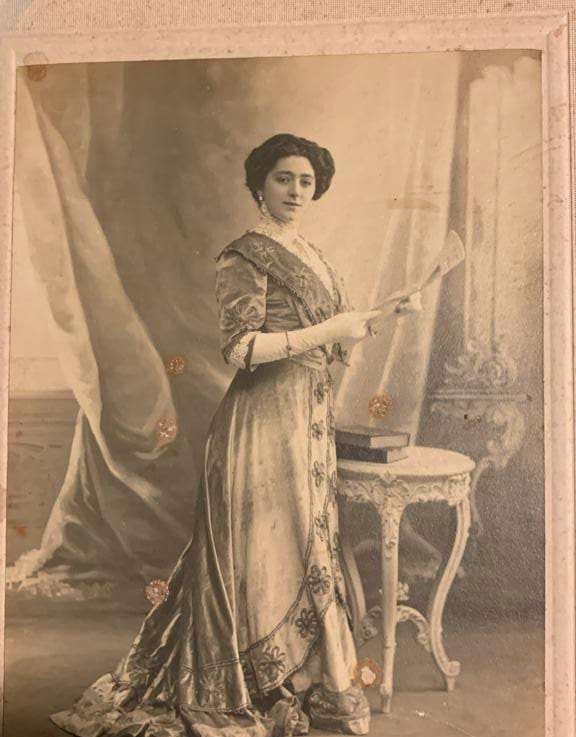In honor of Olga Schweitzer: The Danish concert pianist who became a heroine in Albania
By Feride Istogu Gillesberg and Kemal Libohova

Olga Schweitzer (b. January 4, 1886) is best known in the small town of Libohova, south of Gijokaster in Albania, as “Madame Olga” or “Zonja Olga” in Albanian. Olga Schweitzer was a concert pianist, and after finishing her education in Paris in the early 1900s, she gave concerts in various European capitals, including Istanbul. In Istanbul, she met Albanian intellectual Mufid Bey Libohova, who was studying at the city’s Military Academy. Olga Schweitzer and Mufid Bey Libohova fell in love at first sight. They became engaged and married and settled in Albania in 1909, where Bey Libohova played an important role in the creation of the nation. When Albania finally gained its independence in 1912 after 500 years of occupation by the Ottoman Empire, Mufid Libohova became the country’s first Minister of the Interior, later Minister of Finance and founder of the national bank and the nation’s currency. Since then, as foreign minister, he was also considered an important figure in the nation’s early history. Olga Schweitzer’s descendants tell stories about how she loved Albania and its people. This was the reason she stayed in Albania after her husband’s death in 1927. She cared for the people of Libohova with an open heart and with devotion and care. Perhaps it was the character traits that she brought with her from her Danish upbringing. The people of Libohova loved her for her kindness, and she was referred to by the honorific name “Madame Olga”. During World War II, the German army came to Libohova to carry out an act of revenge against the partisans in the area. The Nazis lined up all the men in Libohova and wanted to liquidate them. But Madame Olga, who had seen what was happening, came out of her house and walked towards the German officer. She stopped him at the moment he was about to order the soldiers to fire. In fluent German, Olga asked the officer what they were doing. The officer was confused, he couldn’t believe what he was hearing – a woman in a far-out place, speaking fluent German! He asks who she is. She evades him and says: “I am a citizen like the ones you have lined up. I am a citizen who lives with everyday worries, sorrows and joys just like everyone here, neither better nor worse than them. I enjoy great respect from the citizens here and ask them to let them go.” The German officer gets confused, and Olga keeps saying that these men are innocent and that the hundred men are part of a hundred families, all of whom she knows. There are no partisans among them. But the officer replies that he has orders to shoot them. Madame Olga assures him again that there are no partisans and ends by saying: “I am like them, so you must treat me like them”. Then she goes and stands in the middle of the line and says: “If you think these people are guilty, which I guarantee you they are not, then shoot me first”! There is total silence for a moment. “Who are you?”, the officer wants to know. “That’s not important,” is her reply. The officer continues to ask, and finally Madame Olga tells him that she is the wife of Mufid Bey Libohova. This prompts the officer to call the German command center in Tirana. When the commander-in-chief hears Mufid Bey Libohova’s name, he gives the order to let them all go free. Olga’s bravery has been told by all the descendants of those who were rescued that day and survived the war. Madame Olga lives on in the hearts of the people of Libohova to this day. Her heroism only became known outside of Libohova after the fall of communism in 1991. But the knowledge of Olga Schweitzer must also be brought beyond the borders of Albania – preferably also to her home country, Denmark.